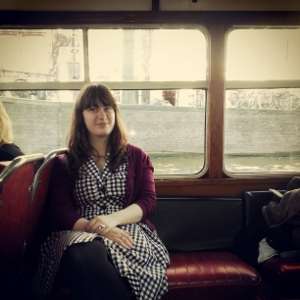In commemoration of the bombing of Rotterdam on May 14 1940, Rotterdam’s concert venue De Doelen organized a very special program consisting of Benjamin Britten’s “War Requiem”. Performed by a German orchestra (the Dortmunder Philharmoniker), English choir (City of Birmingham Symphony Chorus), Dutch children’s choir (Nationaal Kinderkoor), Dutch (Jac van Steen) and Japanese conductor (Motonori Kobayashi), it was a symbolically significant international affair.
The work itself is one of the masterpieces of twentieth century British music, an extraordinarily powerful work written for Coventry’s new cathedral in 1962 (the old one was destroyed in the bombing the city in 1940). The work is scored for orchestra, chamber orchestra, boys choir (but in this performance there was choir of girls instead), chorus, soprano (who sings with the chorus), tenor and baritone. It is different from traditional requiems in that it not only uses the original Latin texts (Requiem Aeternam, Dies Irae, Offertorium, Agnus Dei and Libera Me), but also poems by the English First World War-poet Wilfred Owen. It is almost uncanny how appropriate yet provocative these poems are within the setting of the requiem. For example, at the end of the requiem, the baritone and tenor sings Let us sleep now, while the chorus, children’s choir and soprano sing about eternal rest (Aeternam habeas requiem, Requiem aeternam dona eis).
The performance was of extremely high quality. Although there is something rather odd about seeing three conductors on stage (one for the orchestra, soprano and chorus, one of the chamber orchestra, tenor and baritone and one for the children’s choir), it did not turn out to be confusing. The chamber orchestra was placed separately from the orchestra, next to the tenor and baritone. Because the baritone and tenor voices are only used in combination with the chamber orchestra, this was actually rather pleasant. The singers and players appeared comfortable with this construction as well, as their performances were captivating. The three soloists; Ben Hulett (tenor), Simon Neal (baritone) and Susanne Schubert (soprano) sang absolutely beautifully, with passion, technical skill and the rather necessary volume (after all, we do want to hear the soprano even when the chorus is singing). Both the CBSO chorus and Nationaal Kinderkoor were spot on, with the children’s choir receiving a particularly spectacular applause at the end.
Highlight of the evening was the Libera Me, in which the chorus, orchestra and soprano finally seem able to truly let go, which they aptly did. The “duet” between the tenor and baritone in the Libera Me was heartbreaking and when all these elements were combined, the result was slightly overwhelming and had me wipe away a tear or two. Britten’s own feeling about the requiem: “I hope it’ll make people think a bit” certainly seems true. The last chord of the requiem rang out hopeful, with knowledge of past despair and dreams for a better future.


